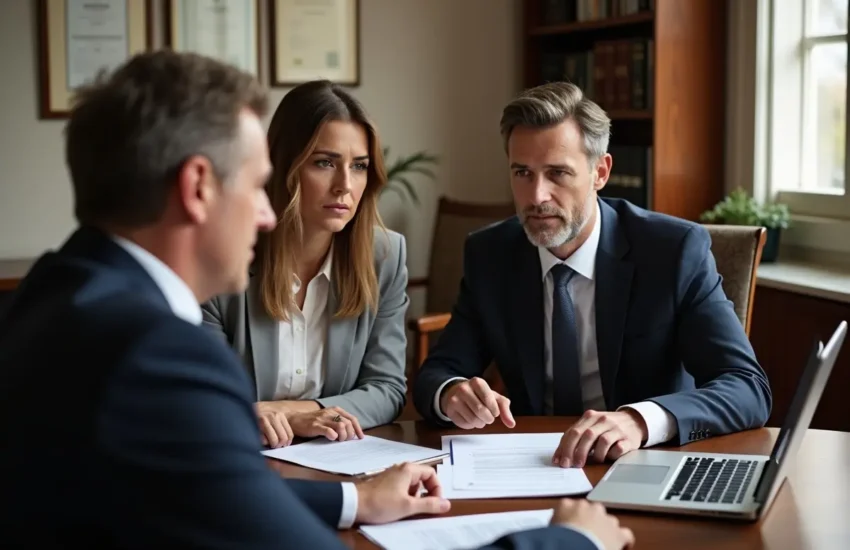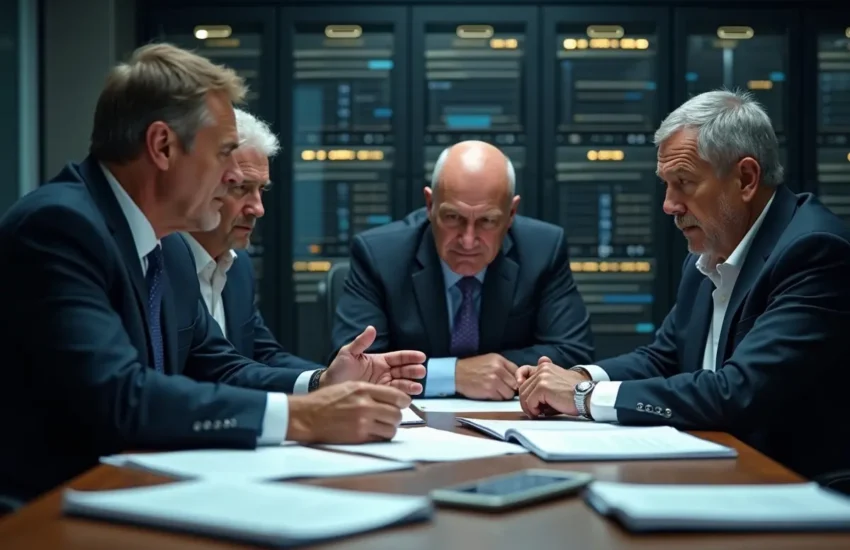Understanding the Crucial Role of Criminal Defense Lawyers: Protecting Your Rights and Freedom
When facing criminal charges, the legal system can seem overwhelming and intimidating. This is where criminal defense lawyers come in. These legal professionals play a vital role in protecting the rights of those accused of crimes and ensuring fair treatment under the law.

What is a Criminal Defense Lawyer?
A criminal defense lawyer is an attorney who specializes in defending individuals and companies charged with criminal offenses. Their main job is to protect the rights of the accused and build the strongest possible defense for their client.
The Importance of Criminal Defense Lawyers
Criminal defense lawyers serve several crucial functions in the justice system:
Protecting Constitutional Rights
One of the most important roles of criminal defense lawyers is ensuring their clients’ constitutional rights are protected throughout the legal process. This includes:
• The right to remain silent and avoid self-incrimination
• Protection against unreasonable searches and seizures
• The right to legal counsel
• The right to a fair and speedy trial
• Protection against cruel and unusual punishment
Defense lawyers make sure police and prosecutors follow proper procedures and don’t violate their clients’ rights. They can file motions to suppress evidence obtained illegally or dismiss charges if constitutional violations occurred.
Providing Expert Legal Guidance
The criminal justice system is extremely complex, with many procedural rules and legal technicalities. Criminal defense lawyers have in-depth knowledge of criminal law and court procedures.
They can explain the charges, potential penalties, and legal options in terms their clients can understand. This allows defendants to make informed decisions about how to proceed with their case.
Building a Strong Defense Strategy
A key part of a defense lawyer’s job is thoroughly investigating the case and developing the strongest possible defense strategy. This may involve:
• Carefully reviewing police reports and evidence
• Interviewing witnesses
• Consulting with expert witnesses
• Analyzing forensic evidence
• Identifying weaknesses in the prosecution’s case
• Uncovering exculpatory evidence that supports the defendant’s innocence
Based on this investigation, the lawyer can determine the best approach – whether that’s negotiating a plea deal or fighting the charges at trial.
Negotiating Plea Bargains
Many criminal cases are resolved through plea bargaining rather than going to trial. Defense lawyers negotiate with prosecutors to try to get charges reduced or dismissed. They work to secure the most favorable plea deal possible for their client. This may involve reduced charges, lighter sentences, or alternative sentencing options like probation or drug treatment programs.
Providing Courtroom Representation
If a case goes to trial, criminal defense lawyers provide skilled courtroom representation. They present opening and closing arguments, cross-examine prosecution witnesses, present defense witnesses and evidence, and make objections when needed. Their goal is to cast doubt on the prosecution’s case and convince the judge or jury of their client’s innocence.
Offering Emotional Support
Facing criminal charges can be an extremely stressful and scary experience. In addition to legal counsel, defense lawyers often provide much-needed emotional support to their clients during a difficult time. They offer reassurance and help clients stay calm throughout the process.
Key Skills of Effective Criminal Defense Lawyers
To provide the best possible defense for their clients, criminal defense lawyers need a specific set of skills:
In-Depth Legal Knowledge
Successful defense lawyers have comprehensive knowledge of criminal laws, procedures, and case precedents. They stay up-to-date on changes to laws and legal strategies.
Strong Analytical and Research Skills
Defense lawyers must be able to quickly analyze large amounts of information and identify key facts relevant to their case. They need excellent research skills to find applicable laws and precedents.
Persuasive Communication
Whether negotiating with prosecutors or arguing before a jury, defense lawyers must be persuasive communicators. They need strong written and verbal skills to effectively advocate for their clients.
Creative Problem-Solving
Each criminal case presents unique challenges. Defense lawyers must think creatively to develop innovative defense strategies and find solutions to complex legal issues.
Negotiation Skills
Skilled negotiation is crucial for securing favorable plea deals. Defense lawyers must be able to effectively negotiate with prosecutors to get the best possible outcome for their client.
Attention to Detail
Criminal cases often hinge on small details. Defense lawyers must be extremely detail-oriented to spot potential weaknesses in the prosecution’s case or procedural errors that could benefit their client.
Empathy and People Skills
Dealing with clients facing serious criminal charges requires compassion and strong interpersonal skills. Defense lawyers must be able to build trust with clients from diverse backgrounds.
The Criminal Defense Process
While each case is unique, criminal defense lawyers typically follow a similar process when handling a case:
Initial Consultation
The process usually begins with an initial consultation between the lawyer and potential client. The lawyer will ask questions about the charges and circumstances of the arrest. They’ll explain the potential penalties and legal options available.
Case Investigation
If hired, the lawyer will conduct a thorough investigation of the case. This includes reviewing police reports and evidence, interviewing witnesses, and gathering any additional relevant information.
Case Strategy Development
Based on the investigation, the lawyer will develop a defense strategy. This may involve filing pre-trial motions, negotiating with prosecutors, or preparing for trial.
Pre-Trial Motions and Hearings
The lawyer may file various pre-trial motions, such as motions to suppress evidence or dismiss charges. They’ll represent the client at arraignment and other pre-trial hearings.
Plea Bargaining
In many cases, the lawyer will engage in plea negotiations with prosecutors to try to get charges reduced or secure a favorable plea deal.
Trial Preparation
If the case is going to trial, the lawyer will prepare by organizing evidence, preparing witnesses, and developing trial strategies.
Trial
At trial, the defense lawyer will present opening and closing arguments, cross-examine prosecution witnesses, present defense witnesses, and make objections as needed.
Sentencing
If the client is convicted, the lawyer will advocate for the most lenient sentence possible, presenting mitigating factors to the judge.
Appeals
If there are grounds for appeal, the lawyer may file post-conviction motions or appeals to higher courts.
Choosing the Right Criminal Defense Lawyer
If you’re facing criminal charges, choosing the right defense lawyer is one of the most important decisions you’ll make. Here are some factors to consider:
Experience
Look for a lawyer with significant experience handling cases similar to yours. An experienced lawyer will be familiar with local courts, prosecutors, and judges.
Specialization
Consider hiring a lawyer who specializes in the specific type of crime you’re charged with. For example, if you’re facing DUI charges, look for a Carlsbad criminal defense lawyer who focuses on DUI defense.
Track Record
Ask about the lawyer’s track record of success with similar cases. While past results don’t guarantee future outcomes, they can indicate the lawyer’s skill level.
Communication Style
Choose a lawyer who communicates clearly and makes you feel comfortable. You’ll be working closely with them, so it’s important that you can communicate effectively.
Availability
Make sure the lawyer has the time and resources to devote proper attention to your case. Ask about their current caseload and availability.
Fees
Discuss fees upfront and make sure you understand the payment structure. Some lawyers charge flat fees, while others bill hourly.
Local Knowledge
A lawyer familiar with local courts and prosecutors may have advantages in handling your case.
Conclusion
Criminal defense lawyers play a vital role in ensuring justice and protecting the rights of the accused. They provide expert legal guidance, build strong defense strategies, and advocate tirelessly for their clients.
If you’re facing criminal charges, don’t hesitate to seek the help of an experienced criminal defense lawyer. With their knowledge and skills on your side, you’ll have the best chance of achieving a favorable outcome in your case.


